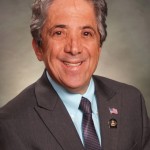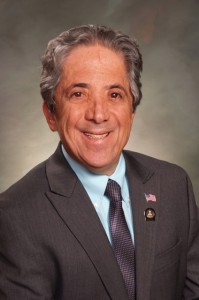An Interview with Catherine Strode
 State Senator John Kefalas is sponsoring a bill to address the high unemployment rate of persons with disabilities, including those with developmental and intellectual disabilities. The bill (SB16-077) proposes a partnership model called ‘Employment First,’ designed to target the unique barriers and challenges people with disabilities face in finding meaningful employment. The ‘Employment First’ structure is modelled after similar initiatives adopted in many other states. In an interview with Catherine Strode, Senator Kefalas says the ‘Employment First’ framework supports an agenda of moving away from sheltered workshops and ‘segregated employment,’ and partnering more with employers in the private sector.
State Senator John Kefalas is sponsoring a bill to address the high unemployment rate of persons with disabilities, including those with developmental and intellectual disabilities. The bill (SB16-077) proposes a partnership model called ‘Employment First,’ designed to target the unique barriers and challenges people with disabilities face in finding meaningful employment. The ‘Employment First’ structure is modelled after similar initiatives adopted in many other states. In an interview with Catherine Strode, Senator Kefalas says the ‘Employment First’ framework supports an agenda of moving away from sheltered workshops and ‘segregated employment,’ and partnering more with employers in the private sector.

‘Employment First’ for Persons With Disabilities State Senator John Kefalas is sponsoring a bill to address the high unemployment rate of persons with disabilities, including those with developmental and intellectual disabilities. The bill (SB16-077) proposes a partnership model called ‘Employment First,’ designed to target the unique barriers and challenges people with disabilities face in finding meaningful employment. The ‘Employment First’ structure is modelled after similar initiatives adopted in many other states. In an interview with Catherine Strode, Senator Kefalas says the ‘Employment First’ framework supports an agenda of moving away from sheltered workshops and ‘segregated employment,’ and partnering more with employers in the private sector. What is the philosophy behind ‘Employment First’? What does the bill propose? What is the fiscal impact? How do you view this bill in the perspective of all your work? |
 Catherine Strode is Advocacy Denver’s Communications and Policy Specialist. She holds a Masters degree in Public Administration with an emphasis in Health Care Policy. Catherine publishes Policy Perspective, featuring interviews with state policy makers on issues that affect the work and mission of Advocacy Denver.
Catherine Strode is Advocacy Denver’s Communications and Policy Specialist. She holds a Masters degree in Public Administration with an emphasis in Health Care Policy. Catherine publishes Policy Perspective, featuring interviews with state policy makers on issues that affect the work and mission of Advocacy Denver.